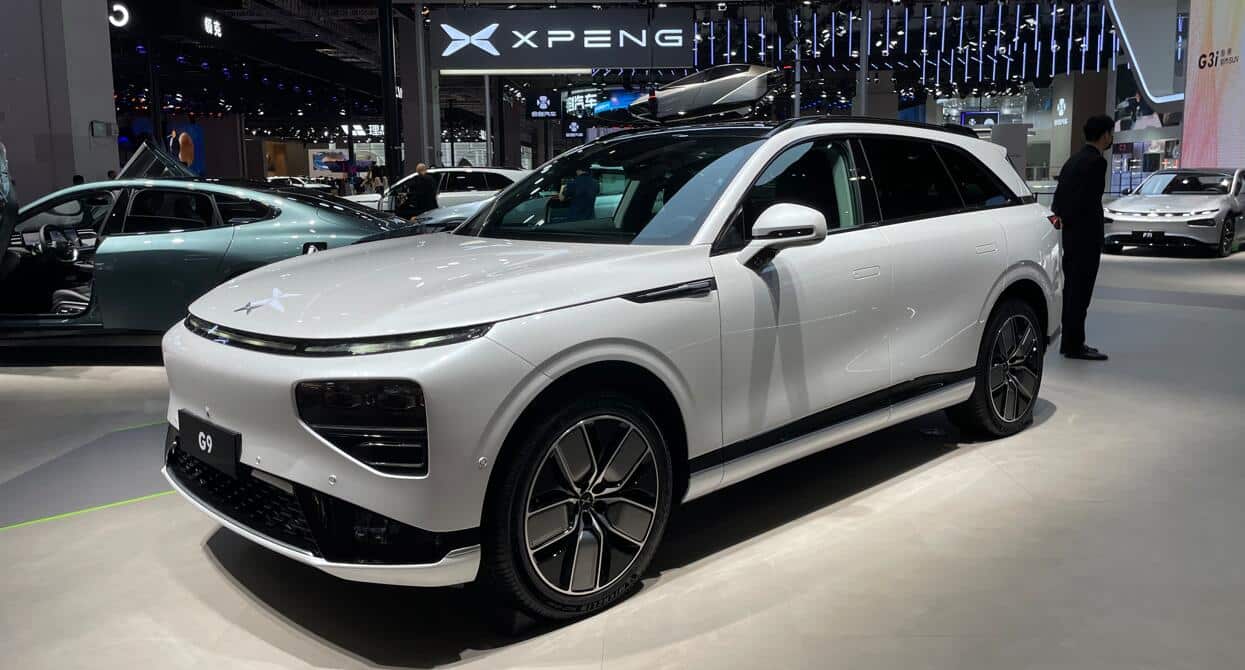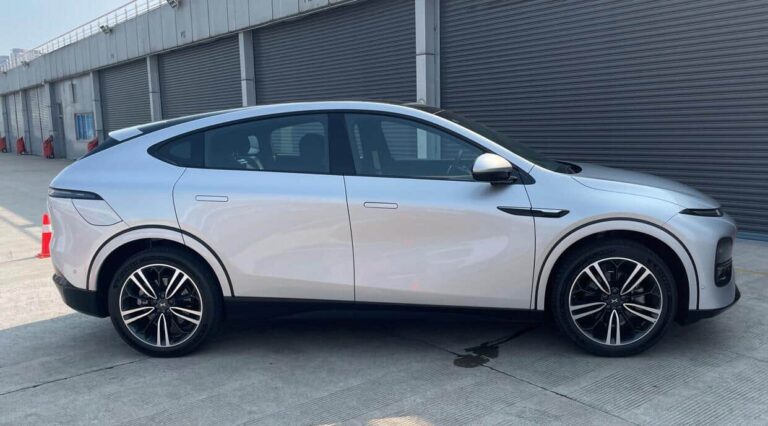Volkswagen's deal with Xpeng could be the first of many strategic partnerships between global automakers and Chinese EV startups, Morgan Stanley said.
(Image credit: CnEVPost)
German auto giant Volkswagen announced yesterday that it will invest $700 million in Xpeng (NYSE: XPEV) and will co-develop two battery electric vehicles (BEVs) that will hit the market in 2026.
To Morgan Stanley, this marks the time of 'Xpeng Inside', and the technology partnership creates new monetization opportunities.
"We think this could be the first of many strategic partnerships between global OEMs and Chinese EV startups," Morgan Stanley analyst Tim Hsiao's team said in a research note sent to investors on Wednesday.
The team gave their answers to major investor concerns.
What will Xpeng offer Volkswagen's two models?
Volkswagen's two B-class BEVs will be built on the Xpeng G9 platform, with Xpeng providing the V2X and XNGP solutions as well as the battery/chassis architecture, while Volkswagen will design and produce the cars under its own brand.
Morgan Stanley sees this as a win-win partnership, as Xpeng can meaningfully expand the user base for its smart cockpit and XNGP technologies, while Volkswagen can accelerate the launch of its next-generation BEVs to fortify its EV presence in China.
How could Xpeng monetize the partnership?
Technical service fees will generate revenue for Xpeng from 2024 in return for providing their G9 platform and technologies in connectivity and XNGP.
Xpeng's management noted that in 2026, Xpeng's technical service revenues will grow in line with increased sales of the two B-class BEVs that utilize Xpeng's solutions.
Margins on technical services revenue from Volkswagen will be higher than hardware vehicle sales, Morgan Stanley said, adding that, at this point, there are no further details to illustrate or quantify the revenue contribution.
Will this lead to new overseas opportunities?
According to Morgan Stanley, this is a noteworthy moment as local brands begin to support global carmakers in developing new BEV models.
More collaboration with global brands wouldn't be a surprise, and this kind of cooperation is expected to be able to lay the groundwork for Chinese carmakers' overseas expansion, Hsiao's team said.
In Xpeng's case, it could open up more opportunities for future cooperation with the Volkswagen Group in China and globally.
What benefits does offering ADAS technology bring?
In the long run, since both BEVs will use Xpeng XNGP, this will help Xpeng accumulate training data and further optimize its algorithms, potentially accelerating system iterations and enabling higher levels of autonomous driving.
What about the competitive risk?
While Volkswagen's new models will utilize the same platform architecture and XNGP as Xpeng's own models, Xpeng management believes that Volkswagen will make every effort to differentiate its BEV models from Xpeng's product line.
Morgan Stanley believes that competition may be inevitable over time, but it's a good problem to have because Xpeng has access to a broader customer base.
Will Xpeng's supply chain benefit from the partnership?
Xpeng's supply chain will likely benefit from the partnership, but it's hard to determine which groups might benefit more, Morgan Stanley said.
Since Volkswagen will be using Xpeng's vehicle architecture and XNGP system, Volkswagen could consider selecting Xpeng's suppliers to boost the production of its new models, the team said.
Chassis, powertrain and smart function suppliers may have a better chance of penetrating Volkswagen's new model market, Morgan Stanley said.
According to a Volkswagen press release yesterday, in the initial phase of its partnership with Xpeng, the two companies plan to co-develop two Volkswagen-branded BEV models for China's mid-size car market.
The two new vehicles will complement Volkswagen's MEB platform-based portfolio and are scheduled to hit the market in 2026, the German auto giant said.
The newly established Volkswagen (China) Technology Co Ltd (VCTC) will be its partner with Xpeng in the development area, Volkswagen said.
This technology company is the Volkswagen Group's largest research and development site outside of Wolfsburg, and in the future, it will be home to more than 2,000 R&D and sourcing specialists, Volkswagen said.

